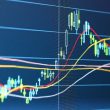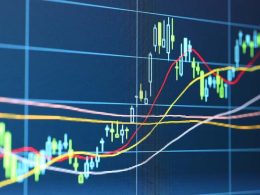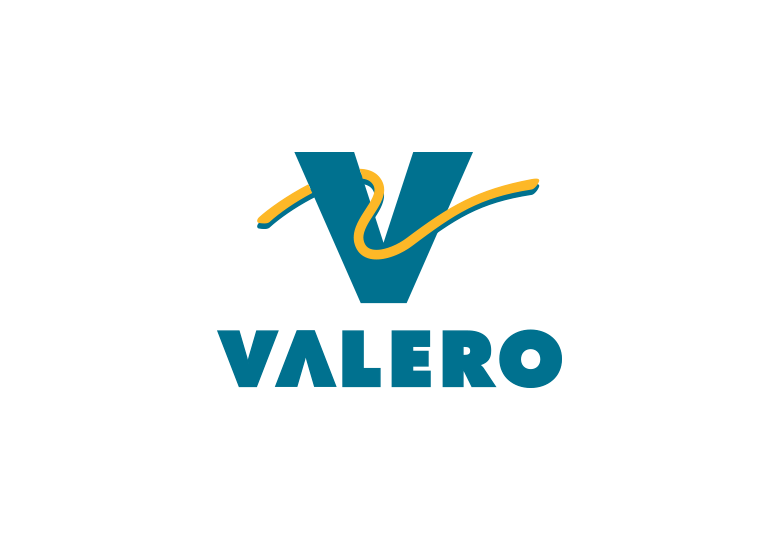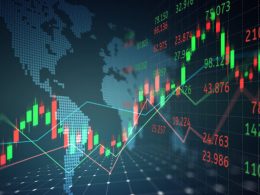by Karen Schenone, CFA, Head, iShares Fixed Income Strategy, Blackrock Global Fixed Income, Blackrock
Looking to generate income from your nest egg? Make sure you don’t get it all from just one basket. Karen explains two funds designed to provide income that aren’t over reliant on any one source.
Once again, yields are low… really low. This creates an obvious challenge for investors that still need their portfolios to generate income. While junk bonds offer high levels of income, you probably shouldn’t have risky junk bonds as your only income generator. But how can we build a portfolio with the primary goal of income while being mindful of not having all our eggs in one basket?
For the DIY crowd, there are an almost limitless number of income-seeking portfolios you can make with bond ETFs. You could invest in U.S. Treasuries, mortgage-backed securities, corporate bonds, emerging market debt, and even floating rate bonds. But knowing how to combine and manage these different types of bond exposures in a portfolio can be overwhelming.
A bond ETF with a lot of “baskets”
iShares Yield Optimized Bond ETF (BYLD) is optimized to simplify the process of diversified income generation. BLYD seeks to track the Morningstar® U.S. Bond Market Yield-Optimized Index which is designed to deliver current income by including bond funds that have demonstrated strong risk-adjusted returns. To do this, it dynamically updates its bond sector exposure depending on the current market environment.
The underlying index for BYLD is built from a diversified set of bond ETFs that are selected from a vigorous screening process. ETFs in in the index must have a minimum of one year of history, over $100 million in assets, and meet minimum daily trading volume to ensure liquidity. BYLD can invest in U.S. Treasuries, mortgages, and both investment grade and high yield credit (see below graphic).
In order to determine the composition of the index, Morningstar looks back over the past 3 years at indicators such as return, standard deviation or risk, correlation and yield of the eligible securities. As a result, the ETF is based on a rules-based, transparent approach to maximizing yield and keeping risk in line with the overall market. BYLD is a one ticker, low cost solution to a portfolio’s bond allocation optimized for income.
Broadening your “baskets” beyond bonds
In addition to bonds, investors may also want to incorporate stocks and alternative sources of income. With a multi-asset approach, there are additional avenues to typically higher yielding asset classes and diversification, such as exposure to real estate and high dividend-yielding stocks (see above graphic).
The iShares Morningstar Multi-Asset Income ETF (IYLD) is designed to do just that. IYLD seeks to track the Morningstar® Multi-Asset High Income Index which seeks to optimize a combination of iShares ETFs to maximize yield per unit of risk. The index rebalances back to a 60% fixed income, 20% equity and 20% alternative allocation on a quarterly basis.
Finding a balance between yield and risk
Let’s take a look at how the risk and yield of these approaches compare to other similar investments. The graphic below compares the index of BYLD versus aggregate bonds and high yields bonds. Similarly, the index of IYLD is compared to U.S. stocks and U.S. dividend stocks. As you can see, the diversified approach of BYLD and IYLD has offered a middle ground of yield and risk versus traditional asset classes.
For investors who have recently been hit hard by the sell off in high yield bonds, or has not been able to meet income targets by investing in aggregate bonds, the index of BYLD has been able to add incremental yield without the same level of volatility as junk bonds. The index of IYLD has also shown that you can achieve a similar level of income as U.S. stocks and dividend stocks, while having and overall lower level of risk.
The bottom line
Income is an important aspect to many portfolios and often the top priority when it comes to investing. Although we may be in a low yield environment today, opportunities for potential income continue to exist both in bonds and broader asset classes. Constructing the optimal portfolio while weighing risk and return is difficult. Accessible and adaptable ETFs like the iShares income optimized BYLD and IYLD may be a good solution for many investors.
Karen Schenone, CFA, is the Head of U.S. iShares Fixed Income Strategy within BlackRock’s Global Fixed Income Group and is a regular contributor to the Blog. Blair Amorello, Associate is a member of the iShares Fixed Income Strategy team and contributed to this post.
Carefully consider the Funds’ investment objectives, risk factors, and charges and expenses before investing. This and other information can be found in the Funds’ prospectuses or, if available, the summary prospectuses which may be obtained by visiting www.iShares.com or www.blackrock.com. Read the prospectus carefully before investing.
Investing involves risk, including possible loss of principal.
Fixed income risks include interest-rate and credit risk. Typically, when interest rates rise, there is a corresponding decline in bond values. Credit risk refers to the possibility that the bond issuer will not be able to make principal and interest payments. Non-investment-grade debt securities (high-yield/junk bonds) may be subject to greater market fluctuations, risk of default or loss of income and principal than higher-rated securities.
Investment in a fund of funds is subject to the risks and expenses of the underlying funds. Diversification and asset allocation may not protect against market risk or loss of principal. Buying and selling shares of ETFs may result in brokerage commissions.
The strategies discussed are strictly for illustrative and educational purposes and are not a recommendation, offer or solicitation to buy or sell any securities or to adopt any investment strategy. There is no guarantee that any strategies discussed will be effective. The information presented does not take into consideration commissions, tax implications, or other transactions costs, which may significantly affect the economic consequences of a given strategy or investment decision.
This document contains general information only and does not take into account an individual’s financial circumstances. This information should not be relied upon as a primary basis for an investment decision. Rather, an assessment should be made as to whether the information is appropriate in individual circumstances and consideration should be given to talking to a financial advisor before making an investment decision.
This material is not intended to be relied upon as a forecast, research or investment advice, and is not a recommendation, offer or solicitation to buy or sell any securities or to adopt any investment strategy. The opinions expressed are as of the date indicated and may change as subsequent conditions vary. The information and opinions contained in this material are derived from proprietary and non-proprietary sources deemed by BlackRock to be reliable, are not necessarily all-inclusive and are not guaranteed as to accuracy. As such, no warranty of accuracy or reliability is given and no responsibility arising in any other way for errors and omissions (including responsibility to any person by reason of negligence) is accepted by BlackRock, its officers, employees or agents. This material may contain “forward-looking” information that is not purely historical in nature. Such information may include, among other things, projections and forecasts. There is no guarantee that any of these views will come to pass. Reliance upon information in this material is at the sole discretion of the viewer.
The iShares Funds are distributed by BlackRock Investments, LLC (together with its affiliates, “BlackRock”).
Morningstar is a trademark of Morningstar, Inc. and has been licensed for use by BlackRock. The iShares Funds are not sponsored, endorsed, issued, sold or promoted by Morningstar, Inc., nor does this company make any representation regarding the advisability of investing in the Funds. BlackRock is not affiliated with Morningstar, Inc.
©2020 BlackRock, Inc. iSHARES and BLACKROCK are trademarks of BlackRock, Inc., or its subsidiaries in the United States and elsewhere. All other marks are the property of their respective owners.
ICRMH0620U-1211666
This post was first published at the official blog of Blackrock.
















